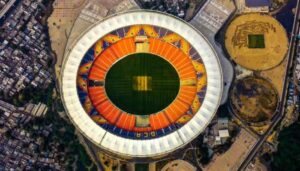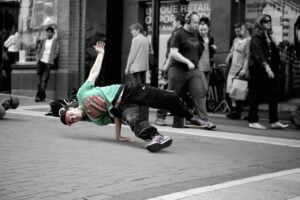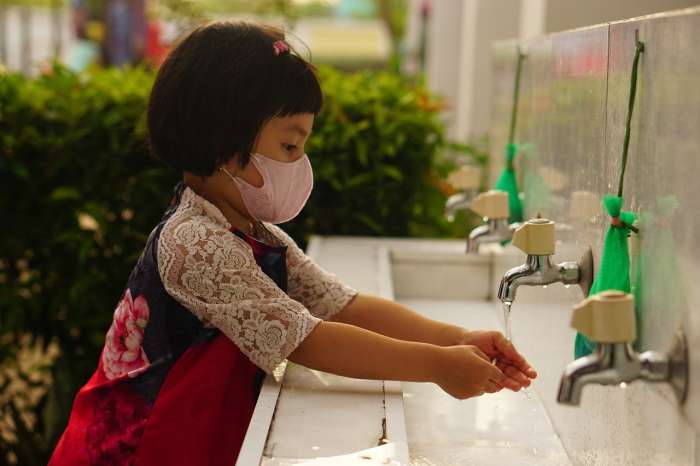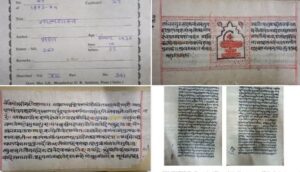Amid the reports of the third wave of coronavirus which will affect the children, the Centre has come out with comprehensive guidelines for the management of Covid-19 among children below 18 years of age. As per the new guidelines for Covid management in children released by the Directorate General of Health Services (DGHS), children aged 5 years or less are not required to wear masks. Those in the age group of 6-11 years may wear a mask “depending on their ability to use a mask safely and appropriately under the direct supervision of parents or guardians”. It also says that children above 12 years of age should be treated like adults and have to wear masks.
Apart from who should wear mask and who should ditch it, the new guidelines also said Remdesivir is not recommended in children and rational use of CT scan has been suggested. The guidelines issued by DGHS also said that steroids are harmful in asymptomatic and mild cases of infection.
The government has recommended use of what it called the ‘6-Minute Walk Test’ on children above 12 to assess “cardio-pulmonary exercise tolerance”.
“Attach pulse oximeter to his/her finger and ask the child to walk in the confines of their room for 6 minutes continuously. Positive test: any drop in saturation < 94%, or absolute drop of more than 3–5% or feeling unwell (lightheaded, short of breath) while performing the test or at end of 6 minutes; Children with positive 6-minute walk test may progress to become hypoxic and early admission to hospital is recommended (for observation and oxygen supplementation),” it said.
A look at the detailed guidelines for the management of Covid-19 among children below 18 years of age
Asymptomatic
•Suspected contact (RAT or RTPCR negative or not available)
•Incidentally detected (RAT or RTPCR positive)
•Take 6 min walk test in children above 12 years under the supervision of parents/guardian; See 6-minute walk test – at a glance
Treatment
•Infants and younger children to stay under immediate care of parents/guardians
•No specific medication required for COVID-19 infection
•Continue medications for other conditions, if any
No investigation needed
Mild
•Home isolation (tele consultation SOS)
• Sore throat or rhinorrhoea
• Cough with no breathing difficulty
• SPO2 ≥ 94% on room air
• Take 6 min walk test in children above 12 years under supervision of parents/guardian; please see 6-minute walk test – at a glance
Treatment
•Promote COVID appropriate behaviour (mask, strict hand hygiene, physical distancing); please see Children and masks guide
•For fever, give paracetamol 10-15mg/kg/dose; may repeat every 4-6 hours
•For cough: throat soothing agents and warm saline gargles in older children and adolescents
•Fluids and feeds: ensure oral fluids to maintain hydration and give a nutritious diet
•No other COVID-19 specific medication needed
•Antimicrobials are not indicated
•Maintain monitoring chart including counting of respiratory rate 2-3 times a day, look for chest indrawing, bluish discoloration of body, cold extremities, urine output, oxygen saturation, fluid intake, activity level, especially for young children
No investigation needed
Moderate
•In addition to symptoms in mild cases, check for pneumonia which may not be apparent
•Rapid respiration (age-based): <2 months RR >60/min; 2-12 months, RR >50/min; 1-5 years, RR >40/min; >5 years, RR >30/min
•SpO2 : 90-93 % on room air
•Admit in DCHC or COVID-19 Hospital
Treatment
•Initiate immediate oxygen therapy
•Maintain fluid and electrolyte balance
•Encourage oral fluids (breast feeds in infants)
•Initiate intravenous fluid therapy if oral intake is poor
•Corticosteroids are not required in all children with moderate illness; they may be administered in rapidly progressive disease
•Anticoagulants may also be indicated
• Exercise caution and see use of corticosteroids and anti-coagulants guide
•For fever (temperature >38°C or 100.4°F): Paracetamol 10-15mg/kg/dose; may repeat every 4-6 hours
•Anti-microbials to be administered if there is evidence/strong suspicion of superadded bacterial infection.
Investigation
•Baseline lab investigations: CBC, Blood Glucose, urine routine, LFT, KFT, CRP, S. Ferritin, D-Dimer, LDH, CPK.
• Repeat investigations: CRP and D-Dimer 48 to 72 hourly; CBC, KFT, LFT 24 to 48 hourly; IL-6 (subject to availability)
• Investigations may have to be repeated more frequently in ICU settings; serial CXR should be at least 48 hours apart
• HRCT chest to be done ONLY if there is worsening of symptoms, please see rational use of HRCT imaging guide
Severe
•SpO2 < 90% on room air
•Signs of severe pneumonia, acute respiratory distress syndrome, septic shock, multi-organ dysfunction syndrome, or pneumonia with cyanosis, grunting, severe retraction of chest, lethargy, somnolence, seizure; assess for thrombosis, hemophagocytic lymphohistiocytosis (HLH)
Treatment
•Initiate immediate oxygen therapy
•Maintain fluid and electrolyte balance
•Corticosteroids therapy to be initiated
•Anticoagulants may also be indicated
•Exercise caution and see use of corticosteroids and anti-coagulants guide
• In case Acute Respiratory Distress Syndrome (ARDS) develops, necessary management to be initiated; see ARDS and Shock guide
•In case shock develops, necessary management to be initiated; see ARDS and Shock guide
•Anti-microbials to be administered if there is evidence/strong suspicion of superadded bacterial infection. See anti-microbial use guide
•May need organ support in case of organ dysfunction, e.g. renal replacement therapy
Investigation
•Baseline lab investigations: CBC, Blood Glucose, urine routine, LFT, KFT, CRP, S. Ferritin, D-Dimer, LDH, CPK.
• Repeat investigations: CRP and D-Dimer 48 to 72 hourly; CBC, KFT, LFT 24 to 48 hourly; IL-6 (subject to availability)
• Investigations may have to be repeated more frequently in ICU settings; serial CXR should be at least 48 hours apart
• HRCT chest to be done ONLY if there is worsening of symptoms, please see rational use of HRCT imaging guide










Bhagavad Gita, Natyashastra added to UNESCO Memory of World Register
Inside Modi, Musk’s Tech Talk: What was discussed
Crypto star Tiffany Fong turns down Elon Musk’s baby proposal. Here’s why